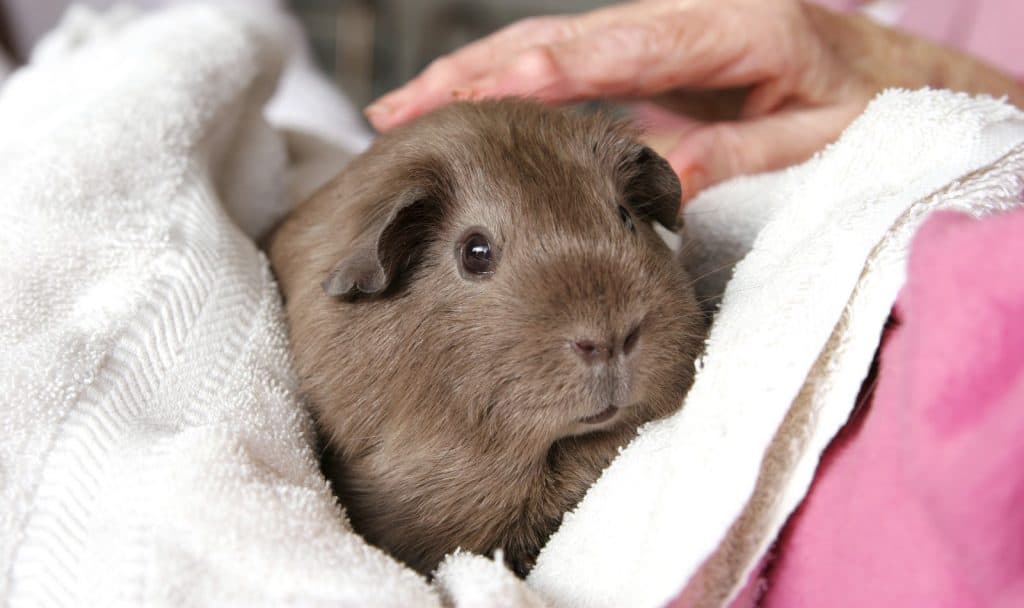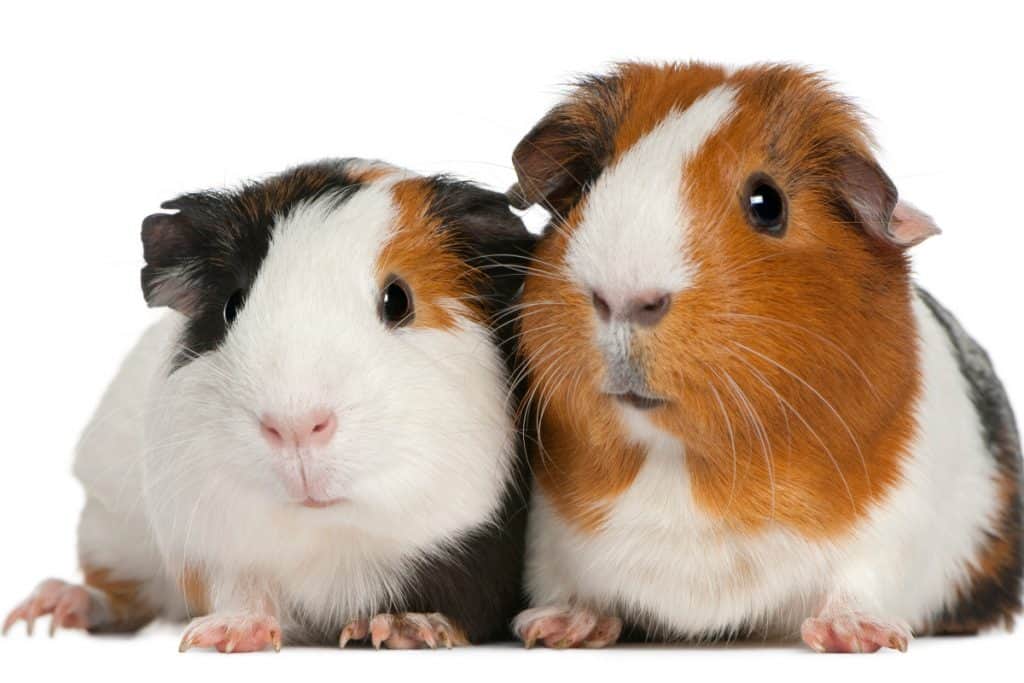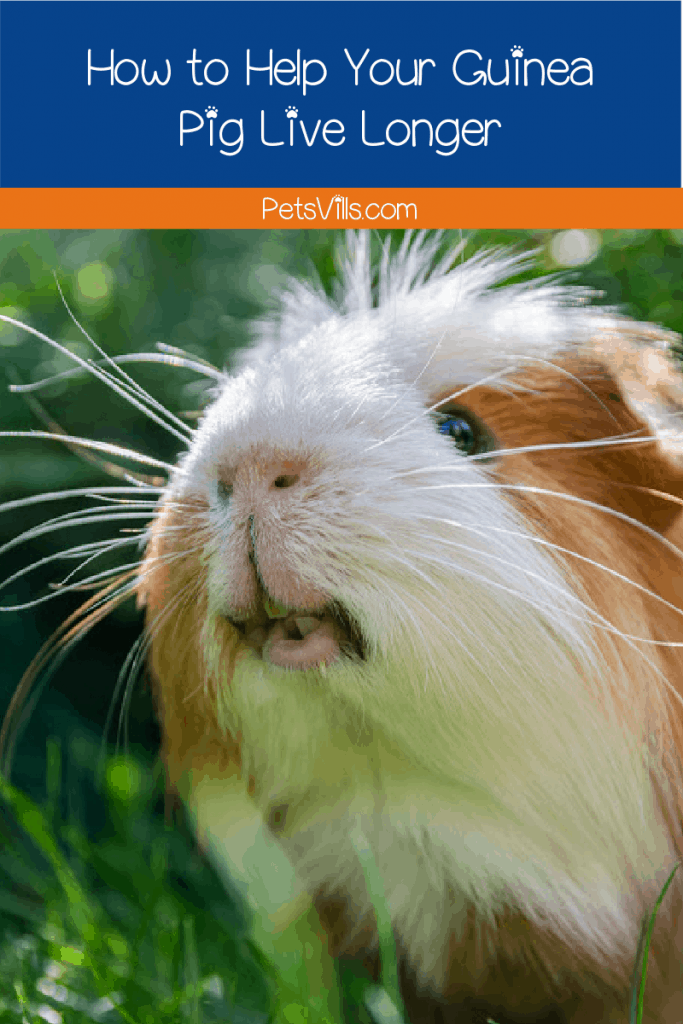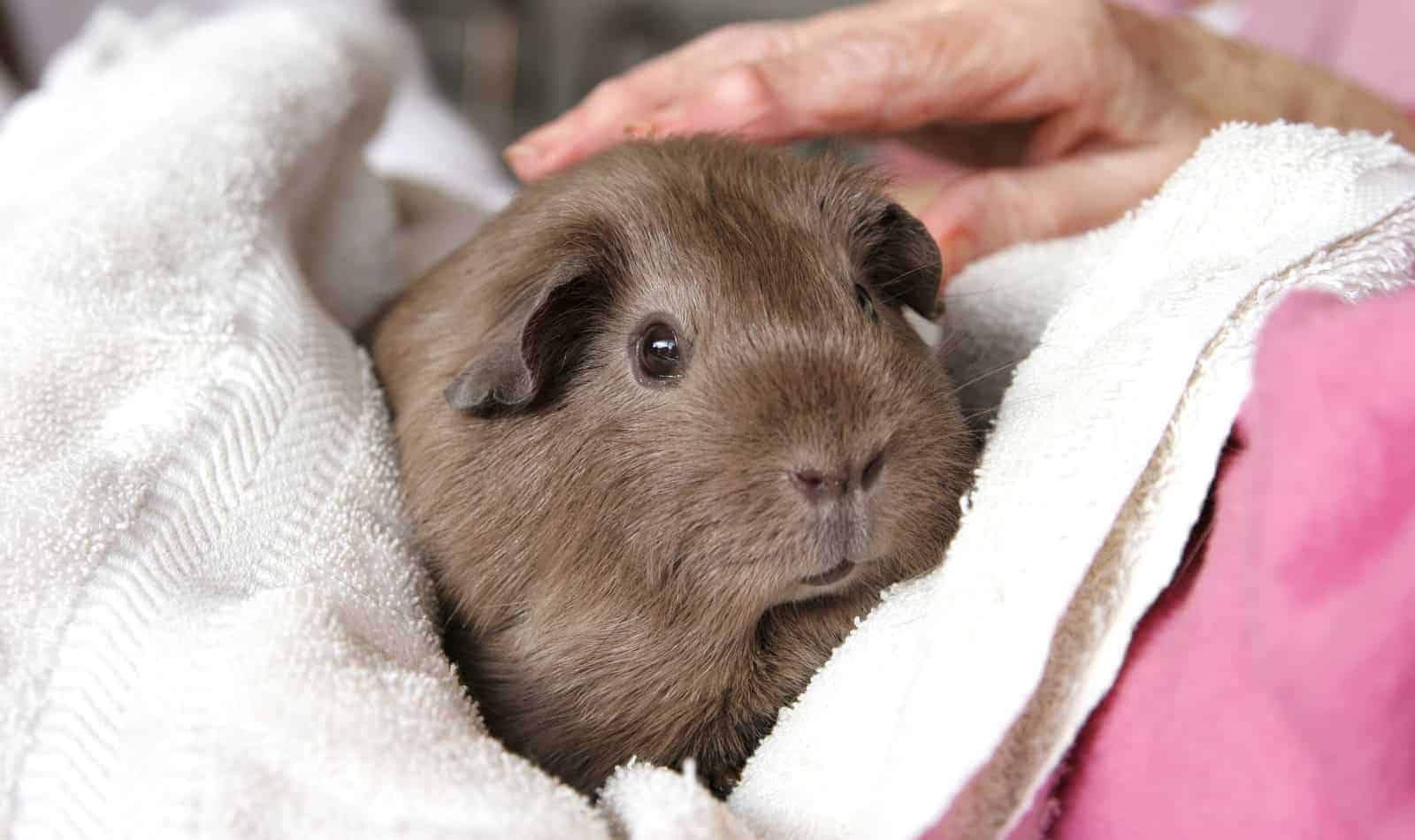Looking for some tips on how to help your guinea pig live longer?
We all want to enjoy our beloved cavies for as long as possible!
Below, you’ll find some vital info on how to do just that!
Let’s dive in!
Table of Contents
How to Help Your Guinea Pig Live Longer

The average lifespan for a domestic guinea pig breed is 5-7 years, with the proper care.
However, their lifespan is dependent on several factors including diet, environment, genetics and health.
The breed of guinea pig is also a factor when it comes to their life expectancy.
For example, American guinea pigs live an average of 4-8 years, Peruvian, Silkie and White Crested guinea pigs live about 5-8 years, Texel guinea pigs live an average of 4-7 years and Skinny guinea pigs survive about 7-8 years.
Fun Fact: According to the Guinness World Records, the oldest guinea pig was named Snowball from Nottinghamshire, England.
When he died in February of 1979, he was 14 years, 10.5 months old.
FYI, this post contains affiliate links. If you make a purchase through these links, we earn a small commission at no extra charge to you.
Purchase a Comfortable Habitat
Just like us, guinea pigs like to be comfy and cozy.
In addition, they need adequate space in order to thrive.
For one guinea pig, a cage minimum of 7.5 square feet is recommended and for two guinea pigs, a cage minimum of 10.5 square feet is recommended.
HOWEVER, bigger is better. Most of the cages found on pet store sites are simply too small for long-term solutions.
Your best bet is to try specialty sites, like Guinea Pig Cages Store.
If you want to grab something from Amazon to use while your cavy is young, this one by Midwest is decent.
The video below has great tips on choosing the right size and style.
Add a Second Guinea Pig
Guinea pigs are extremely social animals. Their well-being depends greatly on physical and social contact with other guinea pigs.
When they are kept alone, guinea pigs quickly become fearful, insecure, lonely, nervous and skittish.
If kept alone too long, it can have an effect on their emotional well-being and physical health.
You’ll want to keep two or guinea pigs of the same sex together.
If you want to keep members of the opposite sex together, be sure at least one of them is either spayed or neutered.
According to the Lake Shore Pet Hospital in Pasadena, Maryland, “Pregnancy is very difficult for guinea pigs, with at least 20 percent on average of the mothers dying during birth.”

Provide a Proper Diet
Guinea pigs need to have a complete balanced diet. This includes hay (80% of their diet), vegetables (10-15% of their diet), fruits (5-10% of their diet) and water.
Hay is the staple food for guinea pigs, so they need a fresh supply of hay daily.
The most popular type of hay among guinea pig owners is Timothy Hay, which provides guinea pigs with the perfect balance of calcium, fat, fiber and protein.
It is important to feed your guinea pig vitamin C-rich vegetables (broccoli, cauliflower, kale and green bell peppers) and fruits (cantaloupe, kiwi, papaya and watermelon).
Since guinea pigs can’t make their own vitamin C, it is important to supplement their diet with it.
The average guinea pig needs between 10 & 30 milligrams of Vitamin C every day to ensure good health.
Water is an essential part of a guinea pig’s diet. They should always have 24/7 access for fresh, clean, chlorine-free water.
Weigh Them Regularly
Weight loss is often an early sign of a health issue in guinea pigs. When you monitor your guinea pig’s size and weight on a weekly basis, you can see if they are maintaining a steady, healthy weight.
Healthy weight of adult male guinea pigs is 2.0-2.6 pounds, whereas the healthy weight of adult female guinea pigs is 1.5-2.0 pounds.
Find an Experienced Exotic Animal Veterinarian
Don’t wait until your guinea pig gets sick to start your search for a local veterinarian.
While guinea pigs don’t need vaccinations, it is recommended that they have yearly checkups.
This way, you may be able to help prevent any serious illnesses.
Exotic animal vets specialize in working with exotic pets, like chinchillas, ferrets, hedgehogs, sugar gilders, and of course, guinea pigs.
Be sure to do your homework and find a vet that is experienced and knowledgeable.
Keep On Top of Any Health Problems
Guinea pigs are susceptible to a few diseases and illnesses.
According to the Merck Veterinary Manual, a reference manual of animal health care, pneumonia is the leading cause of death in guinea pigs, which is usually caused by a bacterial infection.
Other common health issues include:
- diarrhea (most commonly caused by things like internal parasites, poor diet, stress or unclean cages)
- ileus (a buildup of gas in the stomach and the intestines)
- malocclusion (misalignment of the teeth)
- parasites (external parasites like fleas, lice and mites causing itchiness and patches of hair loss)
- ringworm (a skin infection caused by fungus)
- scurvy (a disease caused by a deficiency of vitamin C).
Keep Their Habitat Clean
A dirty habitat can result in accumulation of dirt, dust and debris, bacteria growing and fungus forming in and around the cage.
On a daily basis, dispose of any hay in the feeder and refill if needed.
Toss out any leftover fresh fruits and/or vegetables, remove & replace any dirty bedding and/or litter and clean water bottle/bowl and refill it with fresh water.
Weekly, you’ll want to clean out the cage completely, including cleaning the habitat sides and bottom, as well as removing and replacing all the guinea pig bedding.
Final Words
I just want to close with a little reminder. When it comes to guinea pig lifespans, there are no guarantees.
If you follow all of the tips and still tragically lose your cavy at a young age, please don’t feel like it’s your fault.
You can do everything right and still lose a piggy too soon.
That said, following the tips above will significantly increase your chances of having more time with your furry pal!

Do you have any other tips on how to help your guinea pig live longer? Share below!
Deanna is a passionate animal lover. She is the mom of several guinea pigs and sugar gliders.
When she’s not writing, Deanna loves listening to country music, or watching Dancing With The Stars.
Read her : Latest Articles
FIND HER ON: FACEBOOK and LINKEDIN and

